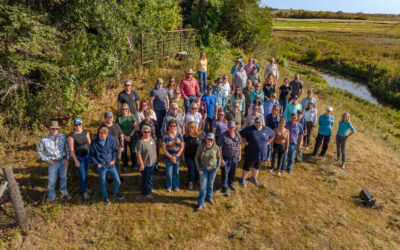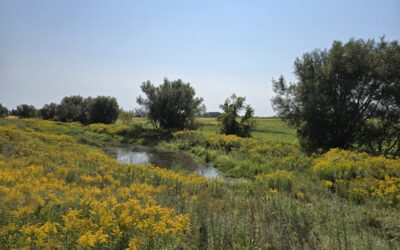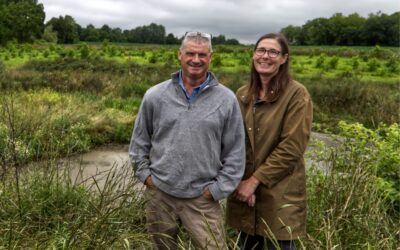With ALUS, Big Rock Bison gets robust outcomes from their ecosystem buffers and mature habitat.
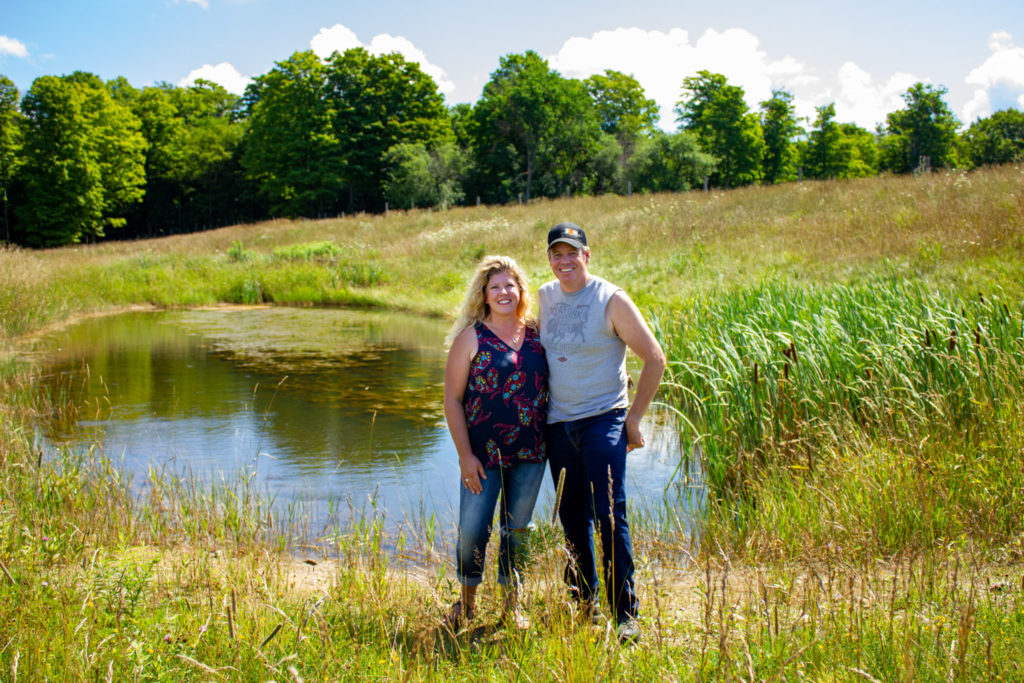
Heather and Mark Shouldice stand in front of their ALUS wetland project.
For more than six years, Mark Shouldice, with the help of his wife Heather and their children Ty and Ellie, has built Big Rock Bison, an environmentally-minded bison-raising operation in Shallow Lake, Ontario. Big Rock Bison produces 100% grass-fed bison for meat and breeding stock sales. The Shouldices have also created a healthy bison snack called a Buff snack stick. The Buff snack stick is marketed across Canada and is listed as an Amazon’s Choice product on Amazon.ca.
Among the many hats they wear, Mark and Heather consider themselves stewards of the land. Since they started Big Rock Bison, they’ve worked to restore grassland across their 200-acre operation.
Joining ALUS Grey-Bruce in 2017 allowed Mark to designate 16.5 acres of his land to riparian and habitat conservation. With ALUS, Mark has fenced off ten acres of mature bush and extended a grassland and wetland buffer that adjoins the bush.
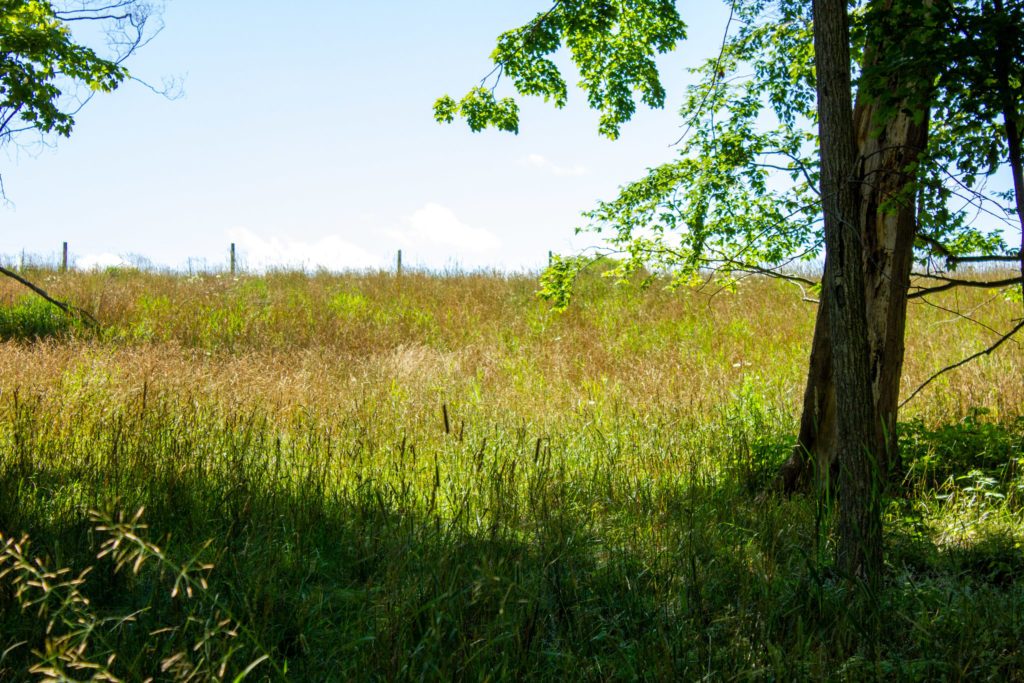
The Shouldice’s ALUS project containing 50 mature trees and wild undergrowth.
“Grasslands around here—and everywhere—are disappearing at a rapid rate,” said Mark of his motivation to participate in ALUS. By isolating these acres of land from his herd, Mark’s land can function as habitat to a broad range of animals, insects and plants.
According to Mark, the project has come with some surprising benefits. He was surprised one day, when walking his ALUS project he came across a water snake making a home in his wetland.
“I think it was a water snake on steroids,” joked Mark. “I thought the neighbour let his python or his boa loose!”
The whole family, Mark, Heather, Ty and Ellie, love what the ecosystems fostered by their ALUS projects bring to the land and into their lives.
“It’s the birds and the animals that have decided to call this farm home,” said Mark of what makes their ALUS projects important to the family. “We see more and more every year.”
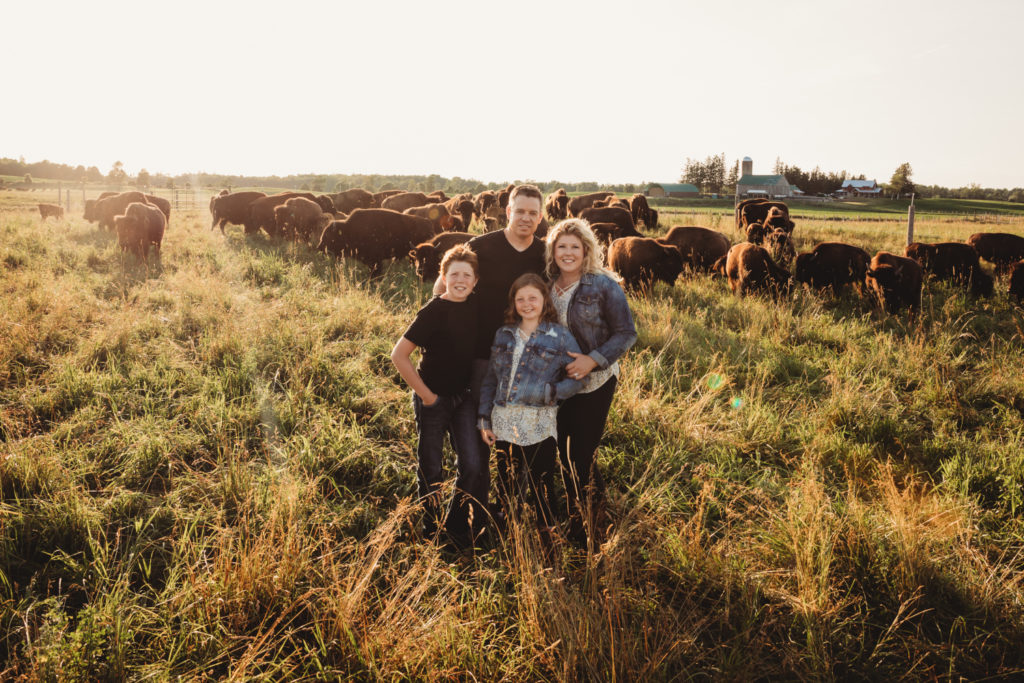
The Shouldice family. Clockwise: Mark, Heather, Ellie and Ty.
The bison play a key role in the ecosystem, too. “We have learned and observed that the hair and fibre a bison sheds—which is a lot—is an excellent building material for nests and bedding,” said Mark of the birds that have come to call Big Rock Bison home. And it’s cyclical, said Mark, drawing in more birds and animals every year.
“We’ve actually kept track of how many birds and animals that we’ve spotted on our farm,” said Mark “It’s a thriving ecosystem around here, whether it’s butterflies, crickets, bees or a big mammal, deer, foxes, and coyotes, or birds, including hawks, eagles, snowy owls.”
The richness of the ecosystems created by the ALUS projects has motivated Mark to explore other ways to benefit the land. Currently, he’s looking to introduce a wildflower mix and other native species into the wetlands. It’s a hallmark of many ALUS projects, once they get going, the producer takes initiatives on themselves to further improve the project. ALUS helps to create a cascade of benefits for the land and the producer.
And for the Shouldice’s, stewarding the land is as much about their personal enjoyment as it is about the health their work. When the land is healthy and thriving, the bison are healthy and thriving.
“A sustainable ecosystem is really what we’re after here, where it’s just turning over every year; the Bison do a good job of fertilizing and pushing seeds into the soil, we do a good job of managing the land, so it doesn’t get over grazed, and give it ample time to heal and recover,” said Mark. “It’s going to be never-ending, and ongoing effort”, which has a beautiful rhythm and is designed to be both earth friendly and sustainable for the long haul.
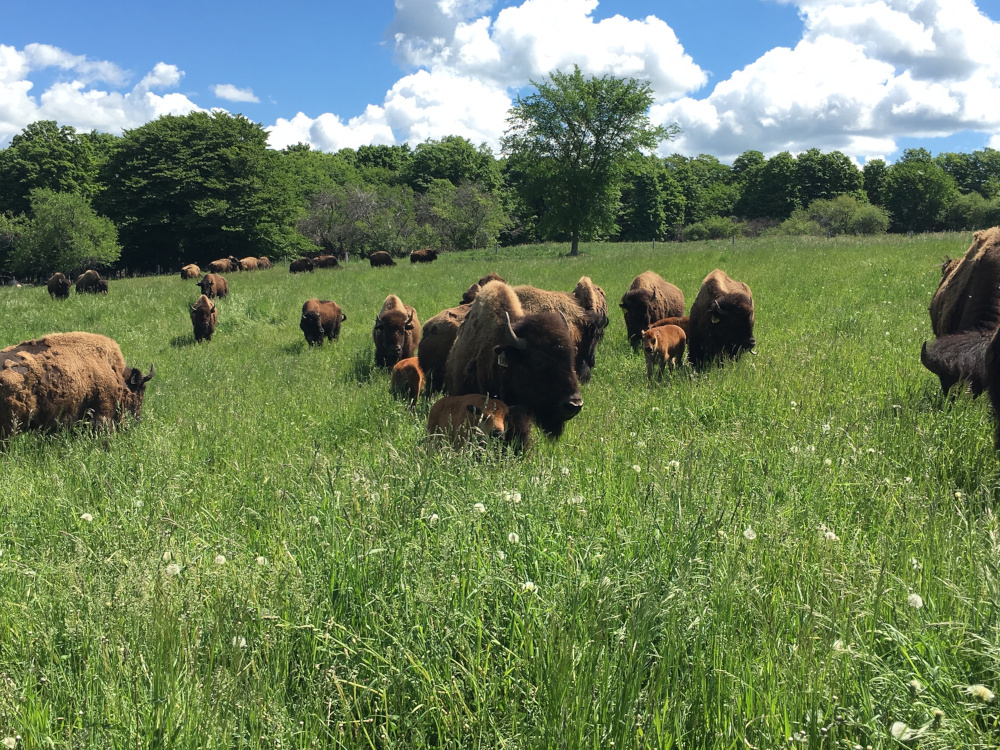
Bison graze at Big Rock Bison among the natural grasslands.

